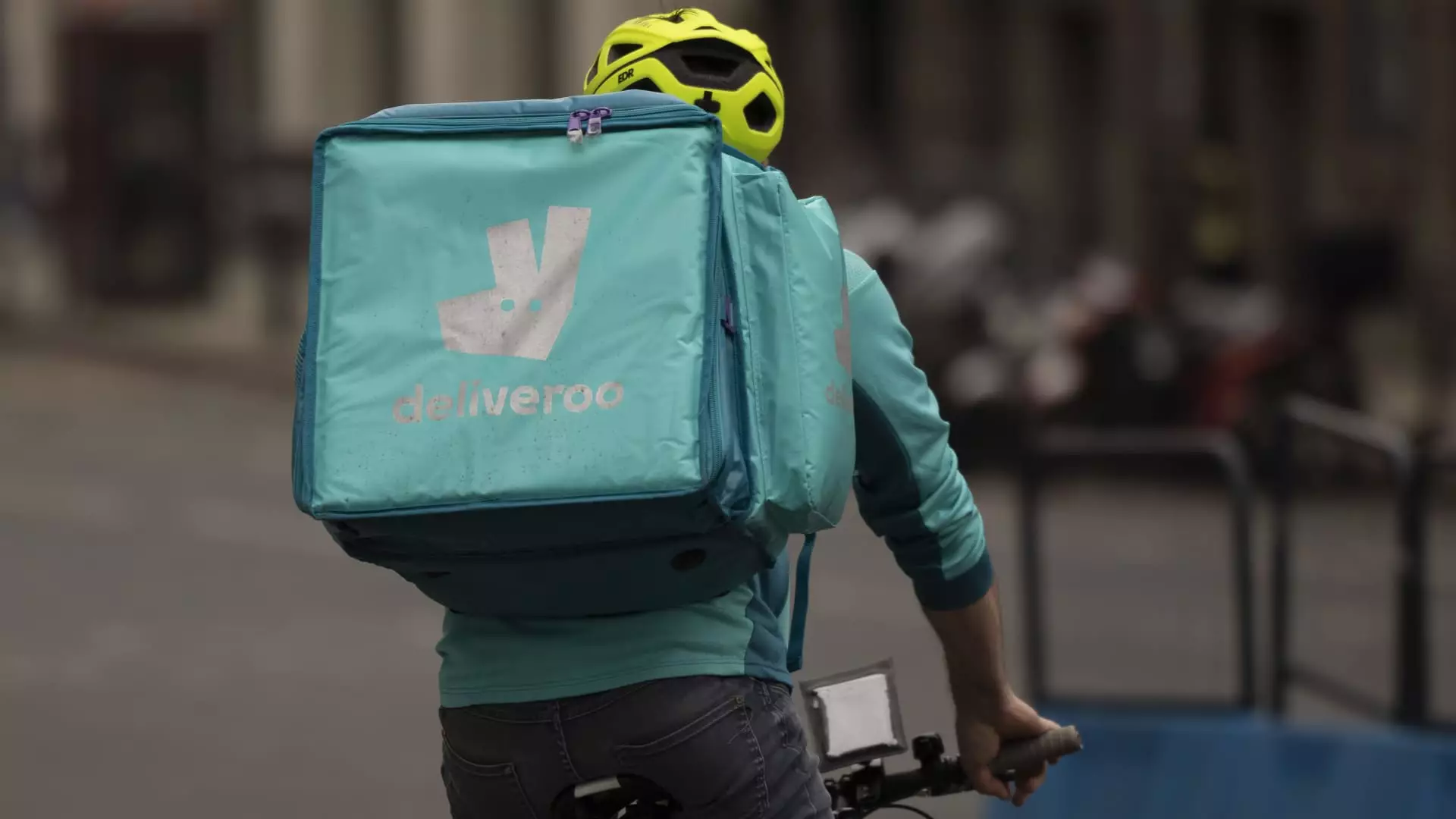On a striking Tuesday, the culinary capital of the world, London, was abuzz with news that the British food delivery service Deliveroo had accepted a takeover offer from its American counterpart, DoorDash. Valued at a staggering £2.9 billion (or $3.9 billion), this acquisition is more than just a financial maneuver; it represents a transformative shift in the global food delivery landscape. This deal sets the stage for an expansive play that could reshape both companies’ futures, allowing them to dominate an industry defined by fierce competition and rapid technological advancement.
Deliveroo’s board announced the deal, confirming that DoorDash intends to purchase all issued shares at a price of 180 pence per share. This price denotes a remarkable 44% premium over Deliveroo’s closing stock price before DoorDash’s initial offer—a figure that must excite shareholders who have witnessed Deliveroo’s tumultuous journey since its high-profile public debut. After a surge to a three-year high following the announcement of a potential takeover, Deliveroo’s stock gained another 2% as investors exhibit renewed confidence, eager to see how this union unfolds.
The Promise of a Unified Future
Tony Xu, the CEO and Co-founder of DoorDash, articulated unabashed enthusiasm regarding the potential collaborative power that the merging entities could wield. He envisions reaching over 40 nations with a staggering collective population exceeding one billion people—an impressive reach that could empower thousands of local businesses with innovative tools and technology. This excitement is not merely a reflection of corporate optimism; it’s an acknowledgment of the pressing need for adaptability and resilience in an era defined by ever-changing consumer behaviors and market dynamics.
For Deliveroo, this acquisition signifies an end to a turbulent chapter post its IPO. Once hailed as a British technological marvel, Deliveroo experienced a staggering fall, with its shares plummeting by 30% shortly after launch. This decline stemmed from a cocktail of factors, including apprehension about sustainability in the wake of the Covid-19 pandemic, intensified competition in the food delivery space, and persistent legal challenges targeting the gig economy. The transformation from tech darling to cautionary tale underscores both the volatility of the growth market and the importance of strategic alliance in ensuring long-term stability.
DoorDash’s Strategic International Expansion
The timing of this acquisition aligns seamlessly with DoorDash’s strategic ambitions. Having previously invested in Finnish food delivery service Wolt for €7 billion, DoorDash’s approach to international growth emphasizes a clear agenda: to bolster its foothold in global markets, taking on rivals that threaten its market share at home and abroad. The slight dip in DoorDash shares following the announcement could signal market caution; however, investors should recognize the long-term strategic advantage that such an acquisition could provide.
Moreover, the consolidation trend within the food delivery industry speaks volumes about the necessity for companies to adapt or perish. From Deliveroo divesting parts of its Hong Kong unit to Just Eat joining forces with investment group Prosus, one can surmise that industry players are keenly aware that survival hinges on the ability to evolve. This acquisition not only secures DoorDash’s growth trajectory but also signals to the market that consolidations may be the primary path forward in a sector characterized by fierce competition and the need for diversified offerings.
Reflection on Market Dynamics
As the dust settles around this historic acquisition, industry analysts and investors alike are left to ponder the implications for the food delivery landscape. What does this mean for smaller players? Will competition intensify, or will it lead to a more cooperative ecosystem? Additionally, as consumer preferences shift, will these delivery powerhouses respond swiftly enough to keep pace with the demand for sustainability and ethical business practices?
The outcome of DoorDash’s acquisition of Deliveroo will serve as a bellwether for future trends in the food delivery industry. Once viewed with skepticism, the consolidation narrative now appears more credible, with industry giants possibly setting a precedent that smaller players may be forced to follow. For both consumers and stakeholders, the unfolding dynamics promise to shape the future of food delivery in profound and exciting ways. It’s a thrilling time in the culinary world, ripe with new possibilities around the corner.

